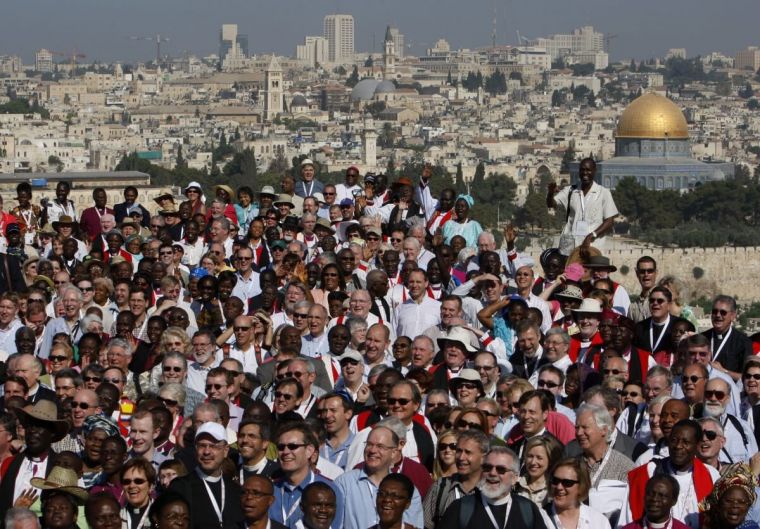Anglican membership figures could be out by millions
The oft-cited figure of 80 million Anglicans worldwide could be out by millions, according to new research.
According to official Anglican Communion figures, the estimated number of Anglicans in the world today is about 80 million. However problems with the reliability of the figures mean the number of active Anglicans could be far lower.
The figure of 80 million includes 26 million Anglicans in England, when there are in fact just one million regular churchgoers.
Daniel Muñoz, lecturer in church history at the Protestant Faculty of Theology SEUT, in Madrid, Spain, challenges the official figures in a paper published by the Journal of Anglican Studies.
He writes: "In recent decades Anglicans have developed a largely unquestioned and unchallenged narrative of global growth and decline. This narrative tells a story of Anglicanism's success being largely due to growth in developing, postcolonial nations which, according to the narrators, is ongoing and unstoppable. At the same time, first-world, mostly post-modern nations have seen a steep decline in church membership and attendance."

He says numeric growth and strength have been used to define ecclesial identity and to legitimate understandings of Anglican orthodoxy. His aim was to offer an up-to-date reappraisal of Anglican Communion membership.
He gathered reliable data on 34 of the 38 provinces.
He distinguishes in his report between "outer circle" members, those who identify as Anglican, and "inner circle", those who identify as Anglican and are also active churchgoers. In order to clarify the figures, Muñoz researched all available sources for the statistics, taking the churches' official figures as the "outer" circle number and using local church statistics and any other available and reliable date to estimate as best as possible the "inner" circle of committed members.
Regarding Nigeria, often cited as a fast-growing province claiming 18 million members, he reports there could in fact be fewer than two million active Anglicans. In England, which lays claim 26 million supposed Anglicans among the 80 million figure, there are in fact about 1.7 million active Anglicans, he says. Australia claims nearly five million Anglicans but in fact just one tenth of these are active.
His analysis shows that of the nearly 80 million people claimed to be Anglican, the actual number of active Anglicans worldwide could be below nine million.
Muñoz refers to statements such as one made in 2005 by the conservative Global South network to represent "the vast majority of the active membership of the Anglican Communion."
He acknowledges the difficulties of obtaining reliable figures when there is no common understanding of what constitutes membership. For some provinces it is baptism or confirmation, for others, such as North America, it is communicants in good standing or being registered in the parish electoral rolls. In Africa, membership is often connected with tribal affiliation, he says.
He writes: "Despite the above, the more fundamental question remains unanswered: how many Anglicans are there in the world today? Apart from the official figure of 80 million Anglicans, which remains largely unchallenged, very few people have offered alternative numbers."
In 1997, statistician Peter Brierly estimated 53 million Anglicans at a time when the widely accepted membership of the communion was thought to be 70 million.
David Hamid, in a 2001 essay on the communion, drew from official figures and concluded there were about 76 million Anglicans worldwide.
The Anglican Communion Office told Muñoz: "I'm afraid there are very few statistics regarding the Anglican Communion. Membership figures are almost impossible to pin down because Churches measure them in different ways."
An Anglican Communion spokesman said: "Although the Church of England has a professional statistics unit and can provide numbers and the basis on which they are calculated, other provinces in the Anglican Communion may use less sophisticated methods to estimate membership. We have not checked with them recently. However and more importantly, it is for Daniel Munoz to provide a theologically sound definition of church membership and the justification for dismissing baptism as the traditional gauge, if that is what he is doing."











